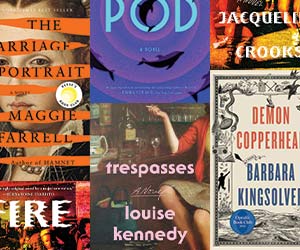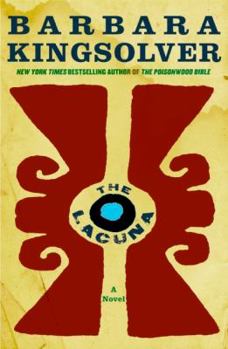The Lacuna
Select Format
Select Condition 
Book Overview
New York Times Bestseller
National Bestseller: Washington Post, Boston Globe, Los Angeles Times, Wall Street Journal, USA Today, San Francisco Chronicle (#1), Chicago Tribune (#1), Denver Post (#1), Minneapolis Star-Tribune (#1), Publishers Weekly
Indie Next Bestseller (#1)
Best Book of the Year: New York Times Notable, Chicago Tribune, San Francisco Chronicle, Seattle Times, Kansas City Star
Prize-winning Author: National Humanities Medal, Pulitzer Prize Finalist, Orange Prize for Fiction, Dayton Literary Peace Prize (Richard C. Holbrooke Distinguished Achievement Award)
In The Lacuna, her first novel in nine years, Barbara Kingsolver, the acclaimed New York Times bestselling author of The Poisonwood Bible and Animal, Vegetable, Miracle: A Year of Food Life, tells the story of Harrison William Shepherd, a man caught between two worlds--an unforgettable protagonist whose search for identity will take readers to the heart of the twentieth century's most tumultuous events.
Customer Reviews
A grand portrait of the alienated artist
Mexican history, American witchhunts, and great characters. I loved it!
A Life Well Lived
This is Literature with a capital L
The Crucial Missing Piece -" The Lacuna"
The Lacuna Mentions in Our Blog

The distinguished Women's Prize for Fiction award celebrates women's creativity in the world and empowers women of all walks of life to raise their voices. This year's shortlist is made up of three first-time novelists, alongside three novels by previous winners and shortlisted authors.






